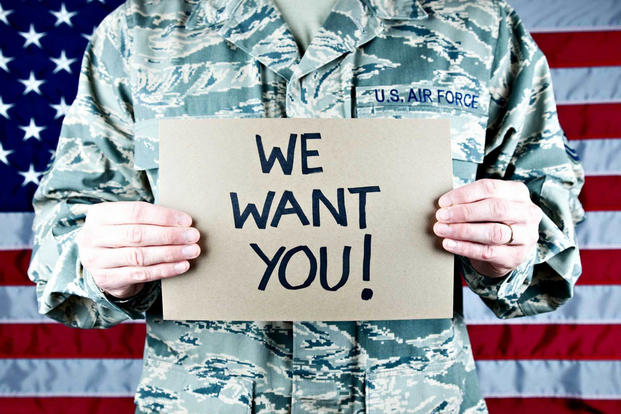The United States ended its military draft in 1973 after nearly 2.2 million men were conscripted during the Vietnam War era. More than 9 million served during that period, but the majority of those draftees were sent to Vietnam.
Consider this: We are 17 years into a "War on Terror" that's come with a $5.6 trillion (and rising) price tag. Our military is currently engaged in an overwhelming number of overseas missions, including a growing number of natural disaster-related deployments. The number of fatal human-error incidents in the military has reached an unprecedented level. Our nation is $20 trillion in debt, and climbing.
Add these facts together, and it begs the question: Can an all-volunteer military force stand ready to answer the call? Will the demands prove greater than our resources?
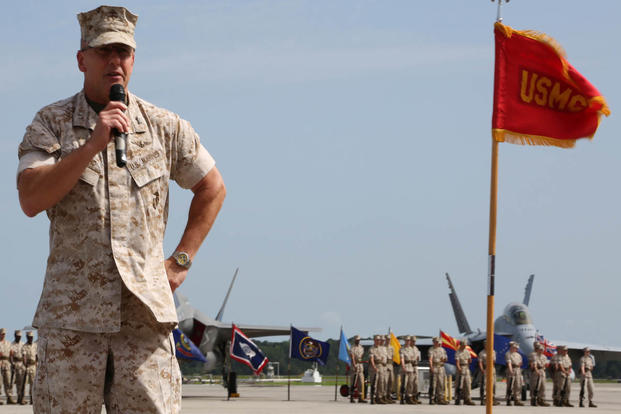
'Not Much in the Barn if Something Breaks'
"If there's a bullet flying anywhere on the planet, Marines want to be there. However, if something big breaks, there ain't a lot in the barn," said Lt. Gen. Robert Hedelund, commanding general of II Marine Expeditionary Force.
Hedelund was speaking at the 2017 Expeditionary Warfare Conference in Annapolis, Maryland, about Marine Corps readiness. Hedelund, along with other high-ranking military officials and veterans, has warned that our military is at a critical crossroads and might be hard-pressed to meet the global demands of numerous ongoing missions as we face low recruitment and retention rates.
Not enough in the barn, indeed. According to a map published by the Costs of War Project at Brown University's Watson Institute for International and Public Affairs, the U.S. is waging the war on terror in 76 countries. That's 40 percent of the countries on this planet.
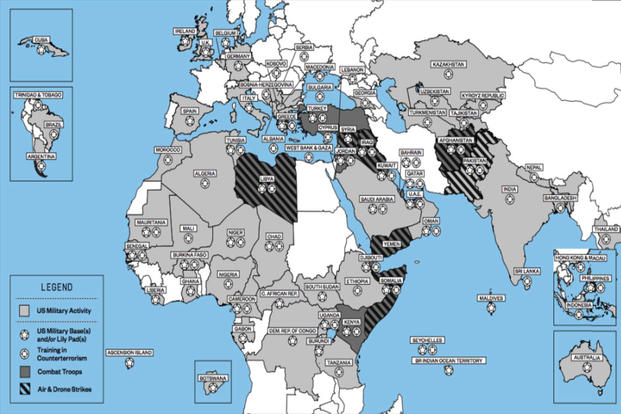
However, this figure may be low and not accurately reflect our total number of secret ongoing special ops deployments. Sources at U.S. Special Operations Command (USSOCOM or SOCOM) say the number of countries where the U.S. is waging war on terrorism is much higher, perhaps even as high as 70 percent.
But what would it take to reinstate a military draft?
"Some kind of mass-mobilization; a war on Korean peninsula, or a more conventional confrontation with Russia or China," retired Army Maj. Gen. Dennis Laich says.
Laich is the author of "Skin in the Game" and founder and executive director of the All-Volunteer Force forum, which contends that our current all-volunteer military is "unfair, inefficient, and unsustainable and contributes to the civil-military gap and the militarization of U.S. foreign policy."
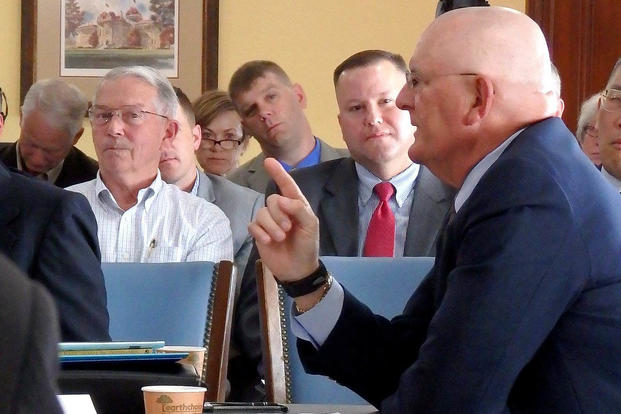
He argues that it might not take the threat of a rogue nation to initiate a draft -- rather, it may be a crisis based on manpower.
"If you do the math, only three out of 10 Americans meet the criteria to serve, and only 15 percent of those able have the propensity to serve," Laich says. "This is unsustainable, especially with an interventionist strategy where America's forces are the global police force and the rest of the world is content [with] letting us play that role."
Laich and many others argue that an all-volunteer force is a fiscal disaster in the long run. There are currently unprecedented incentives for joining the military, some as high as $40,000. Given our current level of debt, he says this trend is "unsustainable" and that "we can't afford the all-volunteer force that we have today."
And Laich contends that this money is clearly an incentive for the socio-economic underclass, which brings the issue of fairness into focus.
"Drafts have never been fair," he says. "But the fact is an all-volunteer force gives us 330 million people that are not obligated to protect and defend. They don't have skin in the game."
The U.S. Military: a Global Interventionist Police Force?
Dr. Andrew Bacevich, retired Army colonel who served in Vietnam and the Gulf War, argues that the root cause of our endless wars is an all-volunteer force because not enough Americans have "skin in the game."
"We currently have two war parties, even if Democrats and Republicans use different language in describing the purposes of the wars they support," he says.
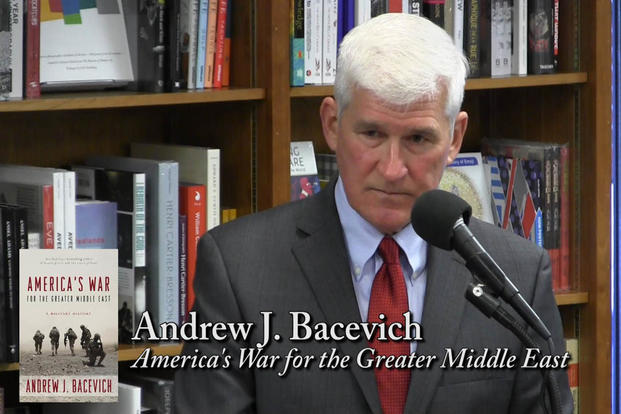
Bacevich's solution? "We need to have another party that is, if not anti-war, at least anti-interventionist."
Bacevich, professor emeritus of international relations and history at Boston University, is critical of American foreign policy in the post-Cold War era. He maintains that after the Cold War, Washington came to see military power as a tool to solve problems instead of relying on diplomacy.
He also contends that popular culture has given rise to an unrealistic portrayal of what war is really like, simultaneously promoting war as heroic as well as the stereotype of the broken warrior with PTSD. Some say these misconceptions only widen the gap of understanding between the civilian and military populations.
Bacevich's only son, Andrew Bacevich Jr., also an Army officer, died fighting in the Iraq War in May 2007.
Can More Veterans in Congress Be a Solution?
The cross-partisan organization With Honor seeks to help more veterans get into Congress and perhaps bring us back to a time when the goal of war was peace rather than one based on intervention.
According to With Honor, veterans represented more than half of Congress for much of the second half of the 20th century. Today, veteran representation in Congress is near a historic low at 19 percent.
"Veterans took an oath to support and defend the Constitution," said John Mahony, a Marine infantry officer veteran and chief operating officer of With Honor. "They know what it means to put the country's interests ahead of their own and, by placing mission accomplishment first, have often been leaders who have made a difference by working together to solve our nation's largest problems."
Bacevich isn't convinced that veterans can do a better job at handling the way our military forces are deployed but says he wholeheartedly supports more veterans in Congress.
National Pride in Service to Our Country
Of course, not everyone believes that compulsory service is the only answer.
Retired Air Force Col. Dan Merry, the vice president of government relations for the Military Officers Association of America (MOAA), believes an all-volunteer force is the only way forward.
"MOAA's position on the draft has been consistent," Merry says. "We support the all-volunteer 'career' force as a necessary component of a strong national defense."
It's also clear that the government is serious about investigating not only how to bridge the gap between civilian and military populations, but how to inspire the American public to serve.
The National Commission on Military, National, and Public Service was created by Congress to consider and develop recommendations about whether we need a military draft. It's also charged with finding ways to foster a greater attitude and ethos of service among American youth. Established on Sept. 19, 2017, the commission intends to issue its final report no later than March 2020 and conclude its work by September 2020.
The commission hopes to ignite a national conversation around service and, ultimately, develop recommendations that will encourage every American to be inspired and eager to serve. It is currently looking for your input.
You can provide your comments directly through the commission's website.
Share your thoughts on these seven questions:
-
Is a military draft or draft contingency still a necessary component of U.S. national security?
-
Are modifications to the Selective Service system needed?
-
How can the U.S. increase participation in military, national and public service by individuals with skills critical to address the national security and other public service needs of the nation?
-
What are the barriers to participation in military, national or public service?
-
Does service have inherent value and, if so, what is it?
-
Is a mandatory service requirement for all Americans necessary, valuable and feasible?
-
How does the U.S. increase the propensity for Americans, particularly young Americans, to serve?
What do you think? Should the United States institute compulsory service?
-- Sean Mclain Brown can be reached at sean.brown@military.com. Follow him on Twitter at @seanmclainbrown
